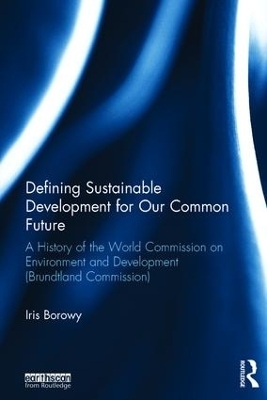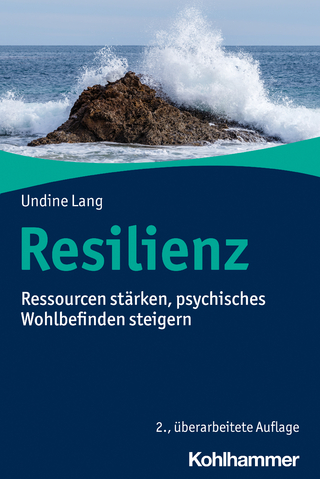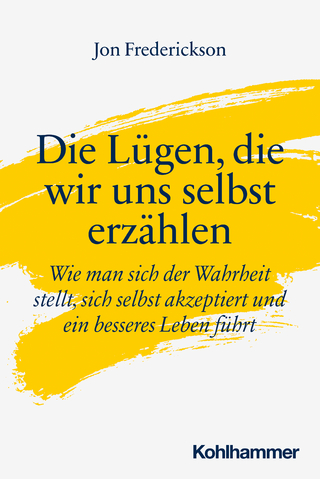
Defining Sustainable Development for Our Common Future
A History of the World Commission on Environment and Development (Brundtland Commission)
Seiten
2015
Routledge (Verlag)
978-0-415-82551-1 (ISBN)
Routledge (Verlag)
978-0-415-82551-1 (ISBN)
The UN World Commission on Environment and Development, chaired by former Norwegian Prime Minister Gro Harlem Brundtland, alerted the world to the urgency of making progress toward economic development that could be sustained without depleting natural resources or harming the environment. Written by an international group of politicians, civil servants and experts on the environment and development, the Brundtland Report changed sustainable development from a physical notion to one based on social, economic and environmental issues.
This book positions the Brundtland Commission as a key event within a longer series of international reactions to pressing problems of global poverty and environmental degradation. It shows that its report, "Our Common Future", published in 1987, covered much more than its definition of sustainable development as "development that meets the needs of the present without compromising the ability of future generations to meet their own needs" for which it became best known. It also addressed a long list of issues which remain unresolved today. The book explores how the work of the Commission juggled contradictory expectations and world views, which existed within the Commission and beyond, and drew on the concept of sustainable development as a way to reconcile profound differences. The result was both an immense success and disappointment. Coining an irresistibly simple definition enabled the Brundtland Commission to place sustainability firmly on the international agenda. This definition gained acceptability for a potentially divisive concept, but it also diverted attention from underlying demands for fundamental political and social changes.
Meanwhile, the central message of the Commission – the need to make inconvenient sustainability considerations a part of global politics as much as of everyday life – has been side-lined. The book thus assesses to what extent the Brundtland Commission represented an immense step forward or a missed opportunity.
This book positions the Brundtland Commission as a key event within a longer series of international reactions to pressing problems of global poverty and environmental degradation. It shows that its report, "Our Common Future", published in 1987, covered much more than its definition of sustainable development as "development that meets the needs of the present without compromising the ability of future generations to meet their own needs" for which it became best known. It also addressed a long list of issues which remain unresolved today. The book explores how the work of the Commission juggled contradictory expectations and world views, which existed within the Commission and beyond, and drew on the concept of sustainable development as a way to reconcile profound differences. The result was both an immense success and disappointment. Coining an irresistibly simple definition enabled the Brundtland Commission to place sustainability firmly on the international agenda. This definition gained acceptability for a potentially divisive concept, but it also diverted attention from underlying demands for fundamental political and social changes.
Meanwhile, the central message of the Commission – the need to make inconvenient sustainability considerations a part of global politics as much as of everyday life – has been side-lined. The book thus assesses to what extent the Brundtland Commission represented an immense step forward or a missed opportunity.
Iris Borowy is an Adjunct Lecturer at the Historical Institute, University of Rostock, Germany and a Research Associate at the Centre Alexandre Koyre, CNRS, Paris, France
Foreword Jim MacNeill 1. Introduction – The Difficult Elements of Sustainable Development Part 1: The Time Before the WCED 2. The Background – Strands Leading up the Brundtland Commission Part 2: The Time of the WCED 3. Establishing the Commission 4. Jakarta 5. Oslo 6. São Paulo 7. Ottawa 8. Harare 9. Moscow 10. Bringing Commission Work to an End Part 3: After the WCED 11. Strands leading away from the Brundtland Commission 12. Conclusions – a Retroactive View on Sustainable Development and its Difficult Elements
| Erscheinungsdatum | 08.03.2022 |
|---|---|
| Verlagsort | London |
| Sprache | englisch |
| Maße | 156 x 234 mm |
| Gewicht | 408 g |
| Themenwelt | Sachbuch/Ratgeber ► Gesundheit / Leben / Psychologie ► Lebenshilfe / Lebensführung |
| Naturwissenschaften ► Biologie ► Ökologie / Naturschutz | |
| Naturwissenschaften ► Geowissenschaften ► Geografie / Kartografie | |
| Recht / Steuern ► EU / Internationales Recht | |
| Recht / Steuern ► Öffentliches Recht ► Umweltrecht | |
| Sozialwissenschaften ► Politik / Verwaltung ► Europäische / Internationale Politik | |
| Sozialwissenschaften ► Soziologie ► Spezielle Soziologien | |
| Technik ► Umwelttechnik / Biotechnologie | |
| ISBN-10 | 0-415-82551-2 / 0415825512 |
| ISBN-13 | 978-0-415-82551-1 / 9780415825511 |
| Zustand | Neuware |
| Haben Sie eine Frage zum Produkt? |
Mehr entdecken
aus dem Bereich
aus dem Bereich
Ressourcen stärken, psychisches Wohlbefinden steigern
Buch | Softcover (2023)
Kohlhammer (Verlag)
36,00 €
die Prämenstruelle Dysphorische Störung als schwerste Form des PMS
Buch | Softcover (2023)
Kohlhammer (Verlag)
29,00 €
wie man sich der Wahrheit stellt, sich selbst akzeptiert und ein …
Buch | Softcover (2023)
Kohlhammer (Verlag)
26,00 €


